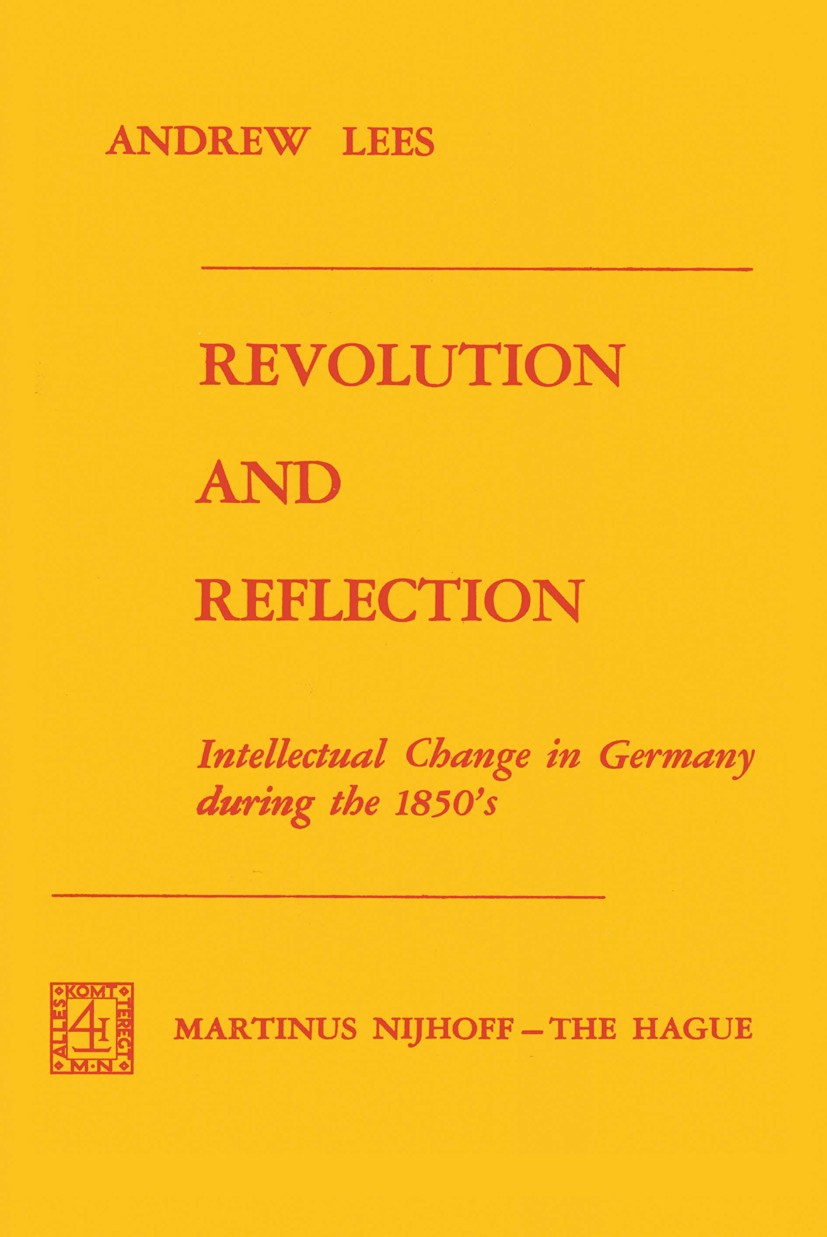| 书目名称 | Revolution and Reflection | | 副标题 | Intellectual Change | | 编辑 | Andrew Lees | | 视频video | http://file.papertrans.cn/830/829876/829876.mp4 | | 图书封面 |  | | 描述 | THE PROBLEM AND THE APPROACH The abortive revolutions of 1848 have been widely regarded by historians as a watershed not only in the political but also in the intellectual de velopment of modem Europe. Before 1848, according to the traditional view, the prevalent climate of opinion was idealistic, hopeful, humane, and progressive. Mterwards, it was empirical, pessimistic, cynical, and obsessed with power. As Hans Kohn put it in his essay "Mid-century: The Turning Point," "In 1848 the foundations of Western civilizatio- intellectual belief in the objectivity of truth and justice, ethical faith in mercy and tolerance - were still unshaken. . . . In the spring of 1848 mankind was full of glowing hope, but the end of 1848 dashed the hopes, and the century which 1848 inaugurated appears to have led slowly but surely to decay and disaster. " 1 Germany, a prime culprit in the debacle which marked the last third of that century, has been seen as the country in which the events of 1848-49 had the most profound impact. Although few historians have gone as far as Kohn in linking the failures experienced by mid-nineteenth-century Germans to the horrors perpetrated by some of their twentieth-c | | 出版日期 | Book 1974 | | 关键词 | Germany; Revolution; Socialism; Vormärz; politics | | 版次 | 1 | | doi | https://doi.org/10.1007/978-94-010-2065-7 | | isbn_softcover | 978-90-247-1638-8 | | isbn_ebook | 978-94-010-2065-7 | | copyright | Martinus Nijhoff, The Hague, Netherlands 1974 |
The information of publication is updating

|
|
 |Archiver|手机版|小黑屋|
派博传思国际
( 京公网安备110108008328)
GMT+8, 2026-1-1 07:07
|Archiver|手机版|小黑屋|
派博传思国际
( 京公网安备110108008328)
GMT+8, 2026-1-1 07:07


